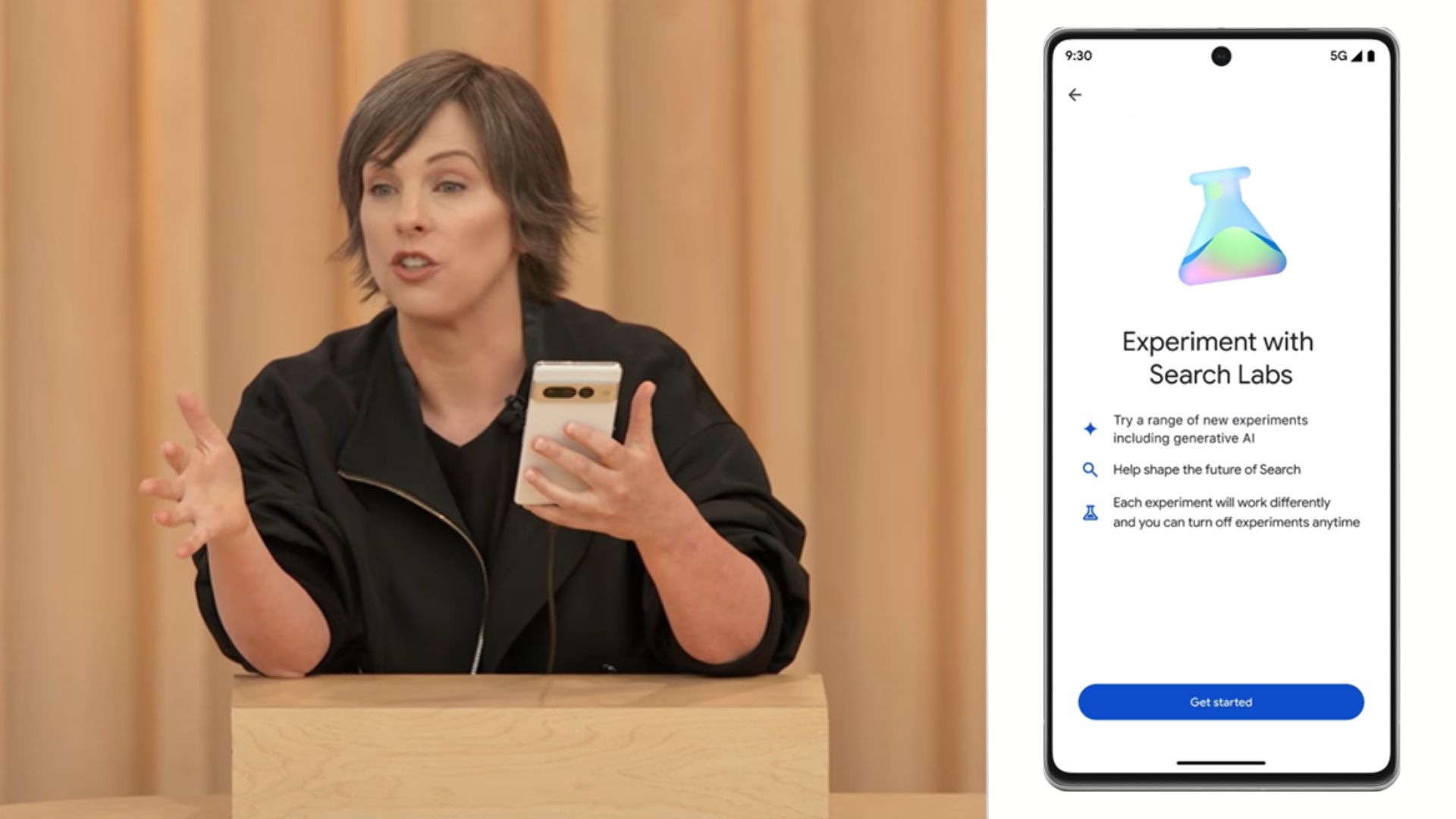
Ever noticed how searching on the internet is getting smarter? That’s because companies like Google and Microsoft are using fancy new AI tech to make your searches feel like you’re having a real conversation
What’s This New “Generative Search” Thing?
You’re an entrepreneur keen to expand your network and learn the latest in the tech world. You think attending a business conference in London would be a stellar move, but you’re swamped by choices. So, you consult your search engine. Instead of the usual list of events, the interaction feels way more tailored.
You ask, “What are the top tech business conferences in London for 2023?” The search promptly suggests, “Have you looked into the ‘London Tech Leaders Summit’? It’s a prime event that covers cutting-edge trends in the tech industry.” Intrigued, you then ask, “Who are the keynote speakers?” and the search provides a detailed list of renowned tech professionals scheduled to speak, along with their expertise areas.
It’s as though you’re planning with a seasoned event organiser, getting recommendations that fit precisely what you’re seeking.
This is the power of generative search. It’s an interactive, intuitive, and highly personalized journey, turning your quest for information into an informative conversation rather than a tedious task. As Google describes it, “a more natural, conversational experience”
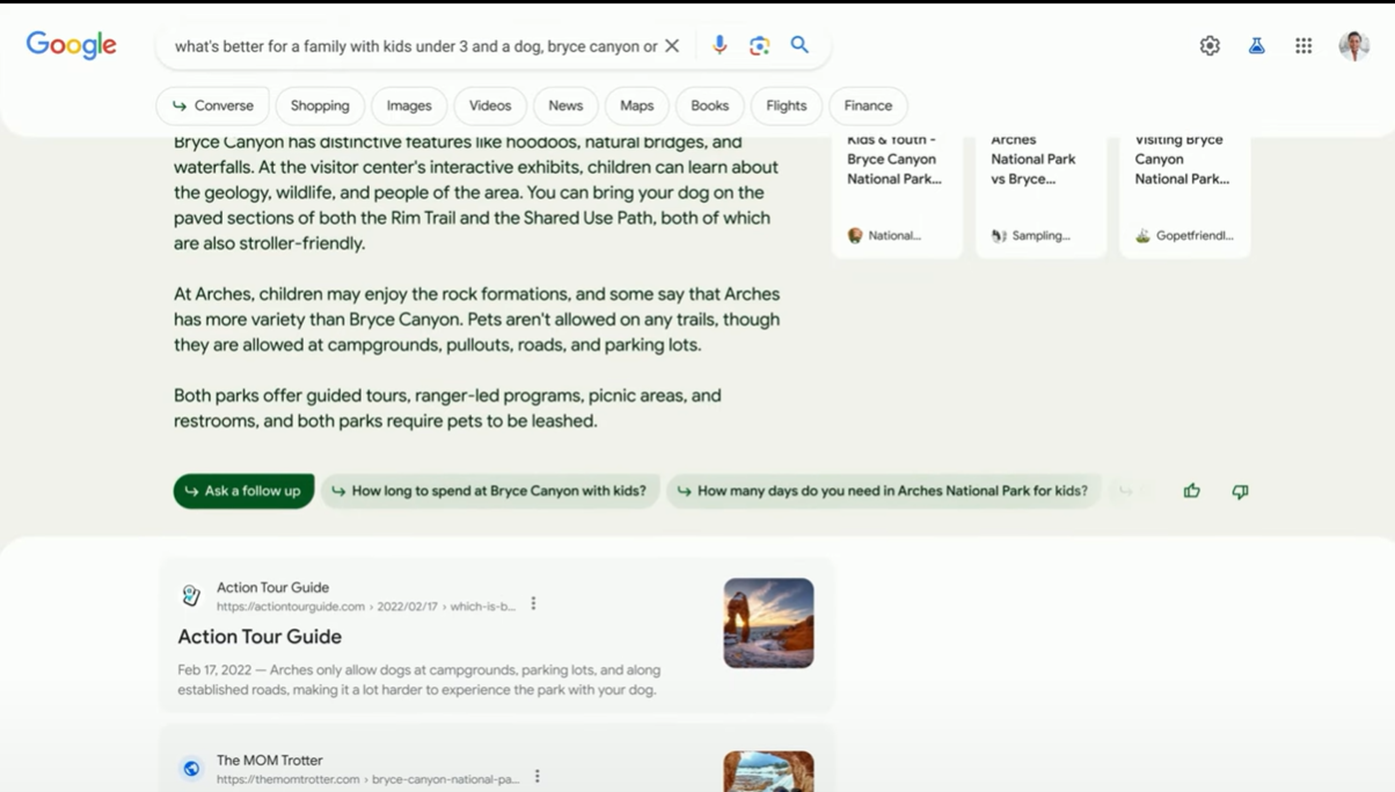
(Photo: Screenshot of search query response from Google Search Generative Experience (SGE) conference)
Google vs. Microsoft AI Search: Which Is Better?
Google and Microsoft are developing their own versions of AI search. Both offer a great user experience. Here’s how they stack up:
- AI Intervention: Google’s AI goes all out, presenting a comprehensive answer on the main search page, often including images and related questions. It’s like getting a detailed box filled with rich information tailored to your query. Bing’s AI, on the other hand, keeps things simpler and shorter.
- Availability: Google’s AI search is still in its early stages. You can read about it and watch related videos, but to actually use it, you’d have to sign up at Search Labs and join a waitlist. Even then, it might primarily be accessible to those in the US. Bing’s AI, on the other hand, is readily available for use
- Platform Limitations: Google’s generative search prefers to stick with the familiar – the Chrome browser and Google’s app. Bing, however, cherishes freedom and doesn’t restrict itself to specific platforms.
We suggest checking out Android Authority’s comparison for a detailed analysis. That said, the real essence of these advancements is best grasped firsthand. Why not try posing a question to Bing’s Search AI right now?
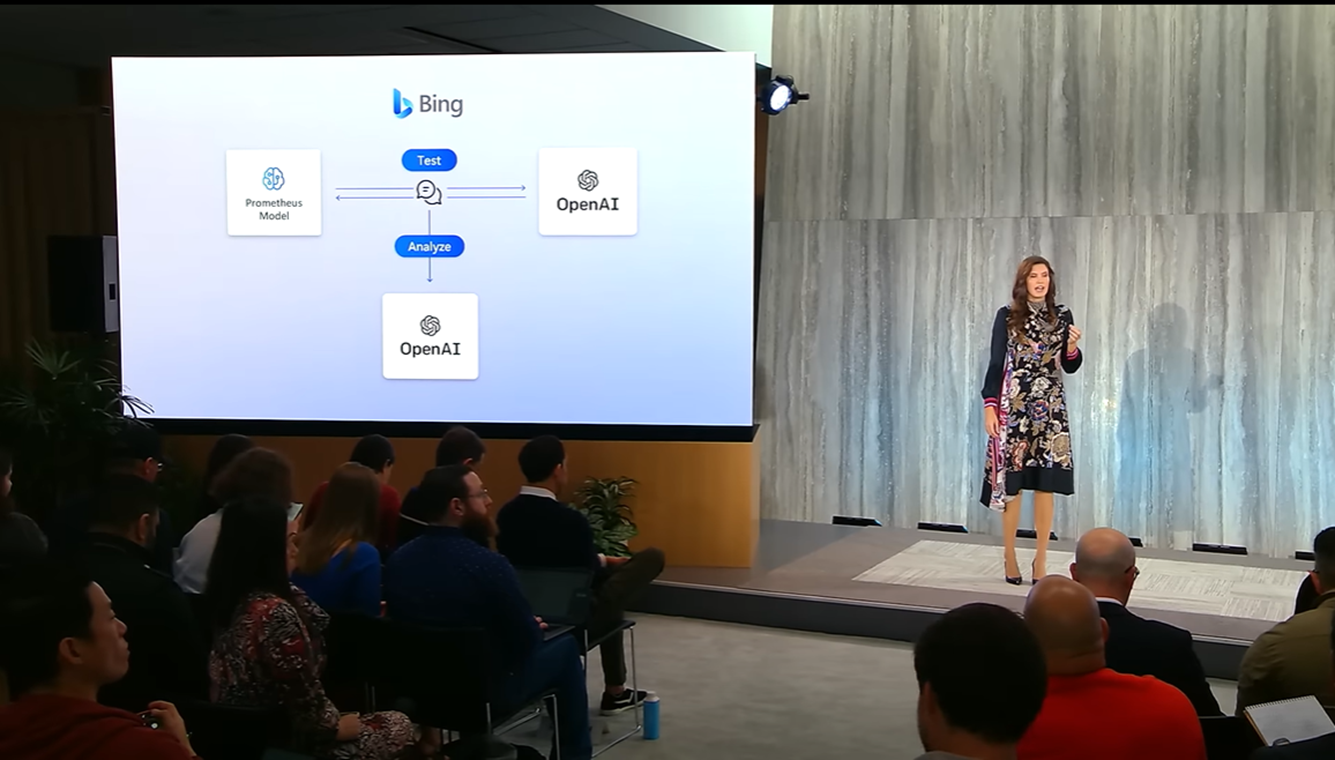
(Photo: Bing demonstrating Bing AI )
Adapting Your SEO Strategy for AI:
As the landscape of search evolves with AI, it’s not just about keeping pace or gearing up for what’s next. It’s about taking proactive steps now to fortify your website’s presence. Here are some actionable tips to keep your SEO strategy relevant and robust
- Understand AI Algorithms: Read up on AI tech like Natural Language Processing (NLP) and Machine Learning. The more you understand, the better you can anticipate and meet user needs.
- Conduct Thorough Keyword Research: Long-tail, high-volume keywords are your secret weapon. Research them, write content about them, and include LSI keywords in your content and on-page copy.
- Optimise for User Intent: It’s essential to answer user queries effectively, using concise natural language that both AI and readers can understand. Ensure your content is relevant and provides value to its audience.
- HTML Structure and User Experience: Ensure your website is visually appealing, has well-structured HTML code and is user-friendly.
- Produce Relevant Content for Your Audience: The more distinctive and valuable content you create that resonates with your audience, the more it becomes a prime choice for AI-driven search platforms. By addressing and providing solutions to your audience’s challenges, you not only enhance engagement but also increase the likelihood of AI platforms showcasing your content
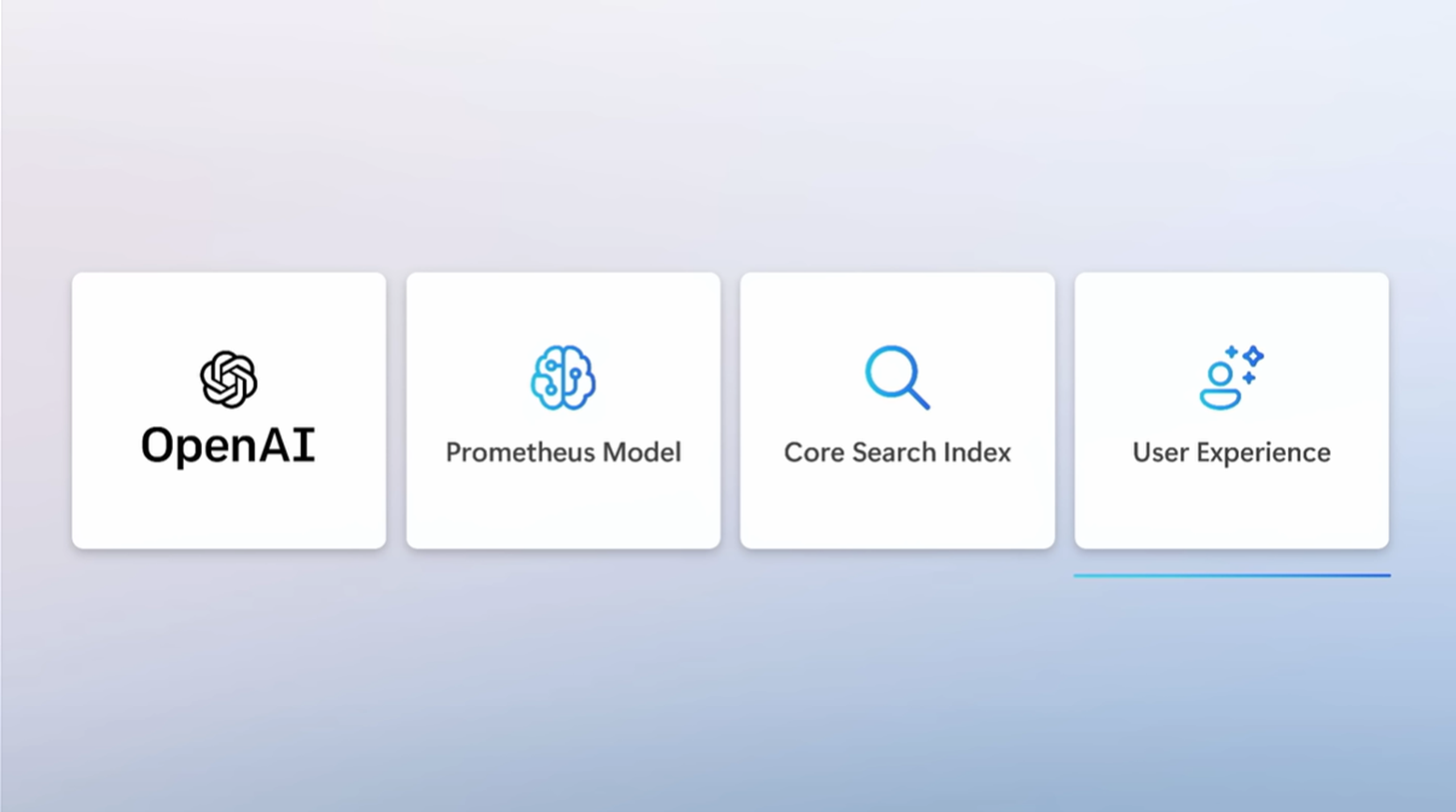
(Photo: Graphic depicting how Bing’s generative search AI decides which content to show)
Will AI Search Make SEO Harder?
With AI search becoming more prevalent, being among the top ten search results might not cut it anymore. AI responses will dominate screen space, securing one of the top five spots becomes even more crucial. On the bright side, AI could help your content get noticed more easily since it understands content better. However, actual clicks to your website might decrease as users get their answers directly on the search page. The challenge is balancing visibility with enticing users to visit your site
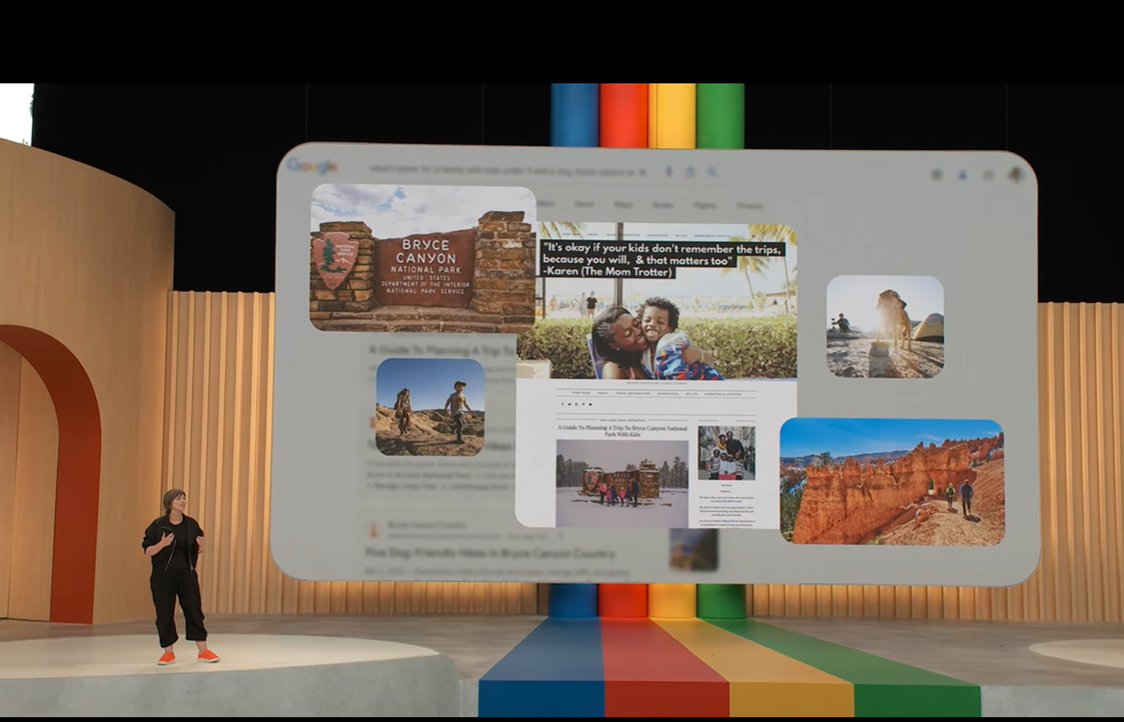
(Photo: Google Search Generative Experience (SGE) conference)
Need Help Preparing For The Future?
We at Cremarc are tech marketing experts, ready to analyse your online presence and provide a blueprint for success in the Generative AI Search era. Feel free to contact us today, info@cremarc.com